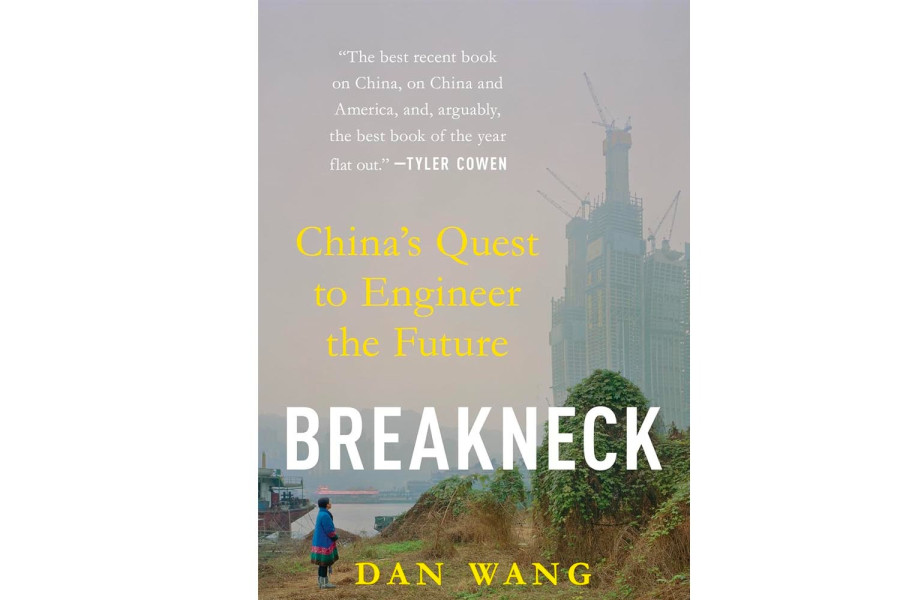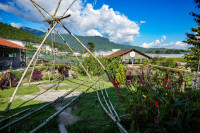Culture & Lifestyle
‘Breakneck’: A significant, necessary, and contradictory book
It tells of an engineering state’s inhumanity but asks us to love the engineer.
Pavan Korada
The modern mind, besieged by chaotic world events, seeks refuge in a simple idea. A single, powerful lens that makes the contest between America and China coherent offers intellectual comfort, a feeling of control. Dan Wang’s Breakneck: China’s Quest to Engineer the Future (Penguin, 2025) provides that lens.
His central thesis—the global struggle as a contest between China’s “engineering state” and America’s “lawyerly society”—is compelling and provocative, a testament to his skill as a writer and observer. The book must be read, for it clearly articulates how systems decay and thrive in our age. But it must also be read with deep scepticism, for its elegance is an evasion of the harsher realities of politics, class, and state violence.
First, acknowledge the power of Wang’s framework. The dichotomy he draws is not arbitrary; it captures a truth about the two empires’ operational ethos. He vividly contrasts a China whose ruling class is obsessed with material transformation on a staggering scale—the physical act of building and mobilising—with an America mired in a “vetocracy.”
This is the America of endless litigation and procedural fetishism where process becomes an end in itself, a society so terrified of repeating the sins of its past builders that it can no longer build. The paralysis of California’s high-speed rail project and the almost casual erection of world-class infrastructure in an impoverished province like Guizhou are not just anecdotes; they are manifestations of these opposing logics.
The book’s most lasting contribution is its development of “process knowledge.” Here, Wang moves beyond the sterile debate over innovation versus imitation. He argues that the true source of China’s technological might is not stolen blueprints but the accumulated, embodied know-how of millions of workers–the knowledge of how to make things at scale. This is a profoundly materialist analysis. He shows how America, by embracing a financialised, “capital-light” economy, offshored not just factories but this entire ecosystem of practical knowledge, a loss from which it may never recover.
The slow decay of a firm like Boeing is not, in Wang’s telling, a simple story of mismanagement, but a tragedy of knowledge: a community of engineers losing its institutional memory, its feel for materials, its ability to build. This insight alone makes Breakneck essential.
Furthermore, Wang does not sanitise the monster he describes. His accounts of the engineering state’s most infamous projects are unflinching. The chapter “One Child” traces the policy’s origins not to ancient cruelty but to a modern pathology: the hubris of a missile scientist, Song Jian, who believed a population could be controlled with the certainty of a rocket’s trajectory.
Wang is clear this was not a “policy” but a decades-long campaign of state terror–forced abortions and sterilisations, a war on the bodies of women, that were one of the great crimes of the late 20th century. Similarly, his visceral first-person account of the Shanghai lockdown in the “Zero-Covid” chapter chronicles the engineering state’s descent into madness.
Faced with a virus that resisted brute force, the state’s logic led it to turn one of the world’s most dynamic cities into a prison, starving people in the name of a numerical abstraction.
And yet, after this devastating indictment, the reader wonders why Wang clings to his initial metaphor. The deeper one delves, the more the “Engineers vs. Lawyers” framework seems a symptom mistaken for the disease. The fundamental problem with the Chinese system is not the professional training of its leaders, but the political nature of the state itself: a Leninist party-state built on the violent enforcement of its own monopoly on power.
Its “engineering mindset” is a rationalisation for a system that cannot admit to the agency, dignity or rights of the individual. The state is brutal not because its leaders think like engineers, but because it is a dictatorship.
This leads to the most troubling part of Wang’s argument: his prescription for America. In his concluding chapter, “Learning to Love Engineers,” he laments the fall of figures like Robert Moses, the “power broker” who built modern New York by sweeping aside democratic opposition. Wang presents this as a lament for a lost “physical dynamism,” a can-do spirit suffocated by a culture of critique and procedure. This is a profound and dangerous misreading.
To yearn for a Moses is to yearn for an autocrat who “got things done” because he operated beyond accountability. The fight against Moses was not a turn to obstructionism; it was a democratic struggle for the principle that a state cannot inflict its will upon people without their consent.
The defense of law and procedure, however frustrating or inefficient, is not a luxury. It is the foundational defense of the weak against the strong. It is the institutional recognition that the individual is not a cog in a machine, but an end in herself. The cure for a dysfunctional democracy is not a dose of efficient authoritarianism; it is the harder work of revitalising democracy itself.
In his final analysis, Wang seems to lose faith in this possibility, looking instead for a softer Americanised version of the very state logic whose horrors he so brilliantly documents in the Chinese context.
Breakneck is a significant, necessary, and contradictory book. Its sharp critique is hobbled by a framework that cannot bear the weight of its own evidence. It tells of an engineering state’s inhumanity but asks us to love the engineer. It gives a definitive account of unaccountable power but seems to long for a benevolent version of it at home.
The final lesson, which the book itself does not, or cannot state, is this: the choice is not between building and debating. It is between a politics that sees people as raw material for a state’s grand designs, and one that sees the state as a humble instrument for the people’s own aspirations to a life of dignity.




 15.12°C Kathmandu
15.12°C Kathmandu















